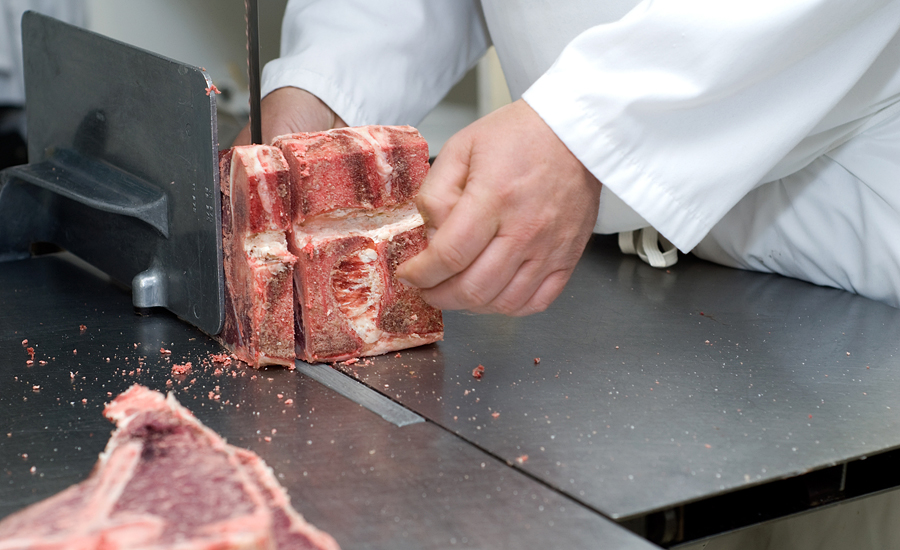An old technology that uses natural bacteria predators, called bacteriophages, is the focus of new research at the University of Nevada, Reno, Nev. The technique is being used to reduce salmonella bacteria in meat products.
“We were able to reduce salmonella by as much as 90% in ground poultry, ground pork and ground beef,” says Amilton de Mello, assistant professor from the College of Agriculture, Biotechnology and Natural Resources at the University of Nevada. “We’re excited to be able to show such good results; food safety is an important part of our work, and salmonella is one of the most prevalent bacteria in the nation’s food supply.”
De Mello’s research treated meat products infected with four types of salmonella by applying Myoviridae bacteriophages during mixing. Bacteriophages are viruses that can only harm specific bacterial cells yet are harmless to humans, animals and plants.
In the experiments, the salmonella bacteria was inoculated on refrigerated meat and poultry trim, then the treatment was applied to the meat before grinding. The bacteriophages invaded the cells of the bacteria and destroyed them.
“On the final ground meat products, there was a tenfold decrease of salmonella,” de Mello says. “The results are very encouraging, and we’re hoping this can be adopted by the meat industry to increase food safety.”
The university’s experiment station houses the meat processing plant, feedlot facilities, cattle working areas and 650 acres of irrigated pasture, all just 15 minutes from the main campus in downtown Reno.



